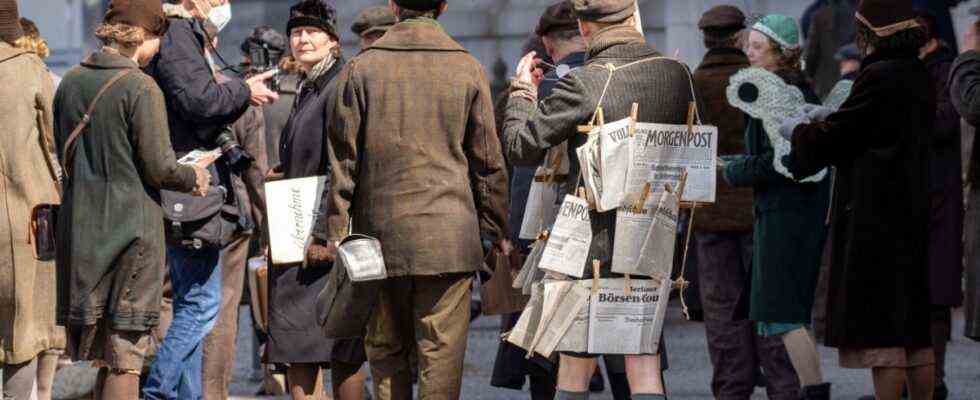Complaints reach the ARD incessantly, that is what the public broadcasters are used to. Not all criticism of them is substantial. The open letters from authors and directors, that were last addressed to ARD, however, have a different quality. Because it is not about petitessen and particular interests, and certainly not about troubled people. But about the basic conditions for artistic work in the broadcasters. Related to this is the respect for creative performance and dealing with contractors, who almost always have the shorthand lever.
All in all, the protests by both the radio play and screenplay writers and now also the film directors reveal that there is basically something wrong with ARD’s collaboration with all those who make feature films, documentaries, radio plays and artistic features for them. With their help and artistic creation, the public broadcasters fulfill a considerable part of their program mandate in the areas of culture, education and entertainment.
In a personal conversation, the initiators of the open letter published by the Federal Direction Association on July 1st become clear: “This is no longer storytelling with the means of film,” says one of them, “but just a drying of days of shooting. ” The cases in which the work of directors degenerate into a pure service for the broadcasters would increase massively, they say. From the point of view of the directors, the question arises for the public broadcasters whether they would like to have cinematic works in the future that bear the signature of those who wrote and staged them – or only interchangeable mass-produced goods.
Directors have a great responsibility, but they lack creative exchange
The Federal Association of Directing would like to enter into an exchange with ARD, for which the vast majority of feature films are made. “Better films do not come about by making demands or threatening them, they are created by working together and agreeing on what can be improved and realized,” says the open letter. There is enough need to talk, especially about their creative freedom, according to the directors. One of them explains that it is a great responsibility. In order to do justice to it, however, one must also be given the opportunity to make one’s own decisions. That is increasingly no longer possible.
There is a lack of creative exchange between the broadcasters’ film editors, producers, authors and creatives on the set. In the discussions with the editors, instead of discussions about content, narrative attitudes, aesthetic considerations, the focus is always on formal points: the number of days of shooting, format issues, budgets.
“There’s an incredible amount of money there,” says one director: “The question is, how do I use it and for what?” Again and again the directors would experience that you don’t adjust the budget for a good script, but vice versa the script to a budget. Obviously, that doesn’t make a movie any better. Especially when the number of days of shooting continues to decrease. Many directors confirm in an interview that there is unbelievable pressure on the set. There are fewer and fewer opportunities to try something out or to make it even better. As a rule, it’s just a matter of getting through quickly and effectively.
The many circumcisions lead to discouragement among many of those involved
The directors describe framework conditions that prevent creative processes because the broadcasters trigger a chain reaction with their actions: scriptwriters would no longer dare to approach certain materials, it can be heard, directors cannot shoot scenes often enough to cut them with more material to make it more exciting. For producers in this country, on the other hand, there are too few incentives to produce for the international market. As a result of these many circumcisions, which lead to discouragement at all levels, as many directors judge, the fiction on German television looks like it does: often conservative, based on consensus, bypassing the realities of life and largely uninteresting, especially for younger people .
The creative minds struggle with this. It is not as if the directors and authors, the cameramen and cutters, the actors and actresses by the hundreds do not understand their jobs. You just let them do them tidily less and less now. This leads to frustration, which is now reflected in the open letter for everyone to see. A number of directors also observe that it is becoming more and more difficult to find skilled workers, for example production managers or lighting technicians. One says: “Some of them go abroad because the working conditions are often better there. Or they look for other jobs because it is no longer fun.” The directors look a little jealous abroad. In France, Great Britain and Scandinavia, for example, the interaction between broadcasters, producers and creative people is much better, since the broadcasters are relinquishing more responsibility.
So far, the ARD has not yet responded to the directors’ open letter.

